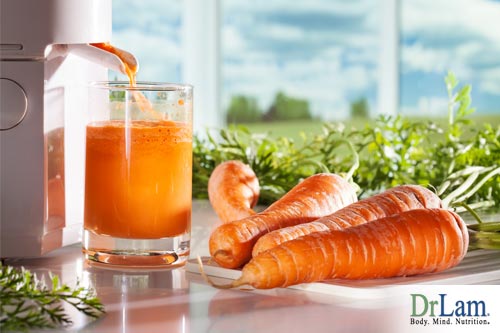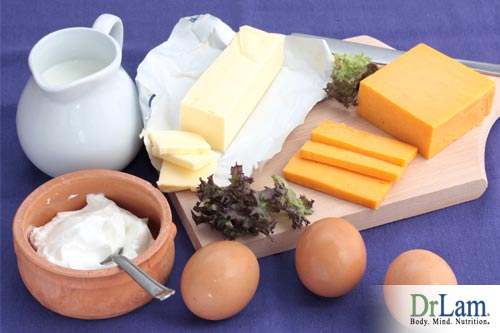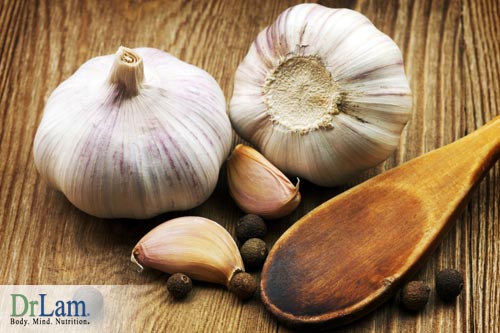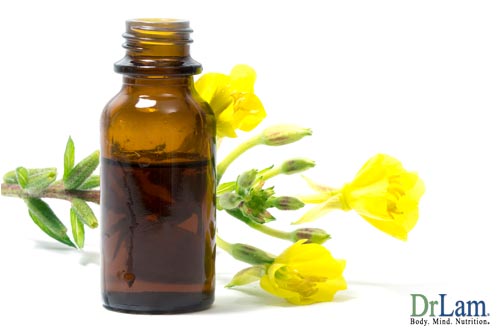The recommended daily allowance (RDA) was introduced by the food and nutrition board in the 1940s and have been used as a benchmark for determining how much of a vitamin, nutrient or food constituent is needed to remain healthy. While our understanding of our bodies' nutritional requirements have progressed a great deal since then, the recommended daily allowance has not been updated to our current level of understanding. As such, we provide here an updated recommended daily allowance of nutrients to start achieving not just adequate, but the optimal nutrition for your body.
 Vitamin A (Anti-Oxidant) - 15000 I.U. (300% RDA) with no more than 5000 I.U. in Vitamin A palimtate and the rest in natural mixed beta carotene. You will not get overdosed or have toxic effects. More than 100 studies have shown that people with high levels of beta carotene in their diet have half as likely the chance of developing cancer and heart attack.
Vitamin A (Anti-Oxidant) - 15000 I.U. (300% RDA) with no more than 5000 I.U. in Vitamin A palimtate and the rest in natural mixed beta carotene. You will not get overdosed or have toxic effects. More than 100 studies have shown that people with high levels of beta carotene in their diet have half as likely the chance of developing cancer and heart attack.
Vitamin C (Anti-Oxidant) - 1000 mg (2000% RDA) in the form of Ascorbic Acid (no need to spend more money on other forms unless you have a sensitive stomach or taking more than the recommended daily allowance of 2000-3000 mg per day). A study of Americans show that intake of 300 mg of vitamin C per day adds 6 years to a man's life and 2 years to a woman's life. Cardiovascular disease decreased by 40%. Take this in split dosages as it is secreted within a few hours. No toxicity has been reported on long term intake of up to 20,000 mg a day. It is important to incorporate Ascorbyl Palmitate (the fat soluable form of vitamin C), L-proline, and L-lysine. The three work synergistically to rebuilt damaged blood vessels and prevent arthrosclerosis.
Vitamin E (Anti-Oxidant) - 400 I.U. (1333% RDA) in the form of water dispersible d-alpha tocopherol (the natural form). This amount has been shown in repeated researches to be the optimum dose for anti-aging and cancer prevention. The risk of not taking Vitamin E is statistically equivalent to the risk of smoking . A large scale Harvard study of 87,000 nurses showed that those taking more than 250 I.U. a day for 2 years have 41% lower incidence of major heart disease. To take the equivalent of 400 I.U. in food would require 2 quarts of corn oil or 28 cups of peanuts a day.
For women: Many in the forefront of anti-aging research is now saying the recommended daily allowance is now up to 800 I.U. a day , especially for women in peri- or post-menopausal period.
For men: Vitamin E has a hormonal balance effect that is important to female. Males do not need as much.
Vitamin B9 (folic acid) - 800 mcg (200% RDA) - a non-toxic nutrient that protects our chromosome from DNA damage and cancer. A Harvard study of 16000 women and 9500 men showed that those getting the post folic acid has the lowest incidence of getting pre-cancerous polyps in the colon. Folic Acid also helps with depression . No noticeable side effects at up to 10000 mcg.
Vitamin B12 - 100 mcg - 1,000 mcg (1666% - 16,666% RDA) - over 24% of people over 60 years old and over 40% of people over 80 years old are deficient due to decreased absorption with age. Deficiency also causes Alzheimer's Disease like symptoms. A must take for those over 50 years old as cheap and added insurance. Non toxic at 1,000 mcg daily for many years or up to 100,000 mcg in a single dose.
Vitamin B1 (thiamine)- 100 mg (6666% RDA) - critical for mental function and nerve cell growth. Non toxic and water soluble.
Vitamin B2 (riboflavin) - 50 mg (2940% RDA) - required for cell growth and release of energy, formation of red blood cell, and synthesis of antibodies.
Vitamin B3 (niacin) - 190 mg (950% RDA) in the form of niacin and niacinamide - stabilizes cell membranes , ensure proper circulation and maintain healthy skin. Aids in the function of the nervous system and helps to reduce cholesterol
Vitamin B5 (panthothenic acid) - 400 mg (4000% RDA) - a non toxic nutrient needed to breakdown fat to covert into energy. An Anti-stress vitamin.
Vitamin B7 (biotin) - 300 mcg (100% RDA) - essential for protein, fat and carbohydrate metabolism. Helps utilization of other B complex vitamins.
Selenium (Anti-Oxidant) - 200 mcg (285 % RDA) in amino acid complex forms to enhance absorption. Selenium is a strong anti-oxidant and the level in our body falls with age. People with decreased levels of selenium is associated with higher incidence of heart disease, cancer, and arthritis.
Magnesium (Anti-Oxidant) - Women: 500-1000 mg (125-250% RDA), Men: 300-600 mg (125% RDA) in chelated form for better absorption. Less than 25% of Americans meet even the low RDA standard. A 2000 cal diet is needed if no supplement is taken. Critical for proper heart function, normalize arrhythmias, and helps to reduce blood pressure. Requirement is higher if you take intake of sugar and fat is high in diet. The calcium to magnesium ratio should be between 1:1 to 1:2.
Chromium - 200 mcg (166% RDA) in chelated form for better absorption - Very little is contained in food and as a result , 90% of all Americans are deficient in the RDA of this trace element which is critical to normalize blood sugar. A Israel research shows that daily intake of 200 mcg of chromium improves insulin resistance in Type II Diabetes by up to 50 % in weeks.
Zinc - 30 mg (200% RDA) in chelated form for better absorption - 33% of healthy Americans over age 50 has zinc deficiency and don't know it. The percentage increase to 90% for those older. You need a daily calorie intake of 2400 cal to get just the recommended daily allowance. Zinc is critical for proper thymus gland and immune system function. Research has shown that daily intake of 30 mg of zinc reactive the immune system with dramatic improvements after 6 months in those with zinc deficiency.
 Calcium - 500 mg (50% RDA) in the form of calcium carbonate - Calcium is especially important for women. In addition to keeping our bones healthy, calcium also fights cancer. Calcium carbonate contains 40% calcium, compare to others such as calcium gluconate which contain 9% elemental calcium. Don't take more than 500 mg at a time for best absorption. Calcium Citrate is better absorbed, but only contains 11% calcium. Calcium should be balanced with Magnesium at 1:1 or 1:2 ratio.
Calcium - 500 mg (50% RDA) in the form of calcium carbonate - Calcium is especially important for women. In addition to keeping our bones healthy, calcium also fights cancer. Calcium carbonate contains 40% calcium, compare to others such as calcium gluconate which contain 9% elemental calcium. Don't take more than 500 mg at a time for best absorption. Calcium Citrate is better absorbed, but only contains 11% calcium. Calcium should be balanced with Magnesium at 1:1 or 1:2 ratio.
Iodine 150 mcg (100% RDA) - important to maintain proper thyroid function
Manganese 20 mg (1000% RDA) - trace mineral essential for protein and fat metabolism
Molybdenum 50 mcg (66% RDA) - essential trace mineral for nitrogen metabolism
Potassium 99 mg - critical for normal cardiac rhythm
Boron 2 mg - enhance healthy bone and brain function and alertness
Silicon 2.4 mg - needed in formation of collagen and connective tissues
Vanadium 25 mcg - essential in formation of bone and teeth
Avoid Iron unless you are anemic.
 Garlic - 500 mg in concentrated form - equivalent to 1250 mg garlic bulk or half a clove of fresh garlic. Garlic has been used by healers for over 5000 years . Numerous studies have shown that garlic decrease triglyceride level by decreasing fat absorption. It also supports healthy blood pressure. Two of garlic's major compounds - allicin and ajoene - have been found to possess powerful actions that help the body boost its immune power. A natural herb that is non toxic.
Garlic - 500 mg in concentrated form - equivalent to 1250 mg garlic bulk or half a clove of fresh garlic. Garlic has been used by healers for over 5000 years . Numerous studies have shown that garlic decrease triglyceride level by decreasing fat absorption. It also supports healthy blood pressure. Two of garlic's major compounds - allicin and ajoene - have been found to possess powerful actions that help the body boost its immune power. A natural herb that is non toxic.
Omega 3 Fatty Acid - Eating 8 ounces of fish a week is all you need to do. If not, men should take the recommended daily allowance of 2,000-3,000 mg and women should take 1,000 mg. Each 1,000 mg should contain 360 mg EPA and 240 mg DHA. Most people taking fish oil has a tendency to develop a fishy " burp". Over 60 research studies have shown that a variety of ailments from arthritis to heart disease can benefit from fish oil (not cod liver oil which contains high dose of Vitamin A and D which is toxic ). Men have a higher risk of cardiovascular disease so a higher dose of omega 3 is recommended. 400 I.U. of Vitamin E should be taken simultaneously to potentiate the effect of fish oil.
Citrus Bioflavonoids 100 mg - potent anti-oxidants derived from plants that have metal binding (chelating) properties. Commonly found in grape seed.
Digestive Enzyme - For women: take a digestive enzyme containing Lipase, cellulase, and amylase. For men: take a digestive enzyme containing amyalse, lactase, and cellulase. Important to promote gastrointestinal health.
For men: Saw Palmetto -160-320 mg -Saw palmetto is a small palm tree native to the West Indies and the Atlantic coast of North America. The active component helps maintain healthy levels of dihydrotestosterone (DHT) in the prostate, and promote proper excretion of DHT from the prostate. Research have shown that 80% of all male will be afflicted with prostate enlargement , a common condition that is also a leading cause of prostate cancer, by the time a man is 80 years old. 1/3 of all male above 35 years old already have a predisposition to precanceous prostate lesions, and 50% of all male at age 50 have enlarged prostate. A healthy prostate will also ensure proper urinary and reproductive health. This herb is a non toxic and risk free prevention of this medical condition.
 For women: Evening Primrose Oil - 500 mg-1000 mg (standardized to 9% GLA) - an essential fatty acid. Strong anti-inflammatory properties and useful for arthritis, PMS, and skin conditions. Most researches uses 3000-6000 mg a day. EPO is especially good to balance the hormonal system.
For women: Evening Primrose Oil - 500 mg-1000 mg (standardized to 9% GLA) - an essential fatty acid. Strong anti-inflammatory properties and useful for arthritis, PMS, and skin conditions. Most researches uses 3000-6000 mg a day. EPO is especially good to balance the hormonal system.
L-Lysine 600 mg - an essential amino acid for proper growth in children and protein synthesis in adult.
Choline 200 mg - responsible for proper neurotransmitter function , lecithin formation , liver function, and gall bladder regulation.
Inositol 100 mg - vital for hair growth and prevent hardening of arteries.
PABA (para-aminobenzoic acid) - basic constituent of many B complexes and anti-oxidants. This nutrient helps protect against sunburn and skin cancer.

